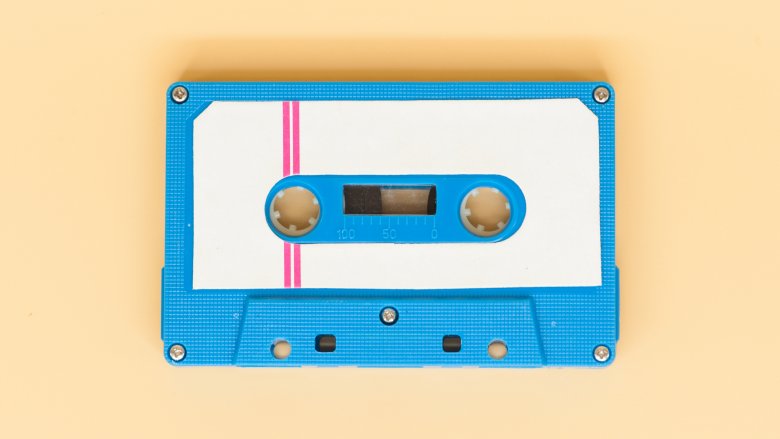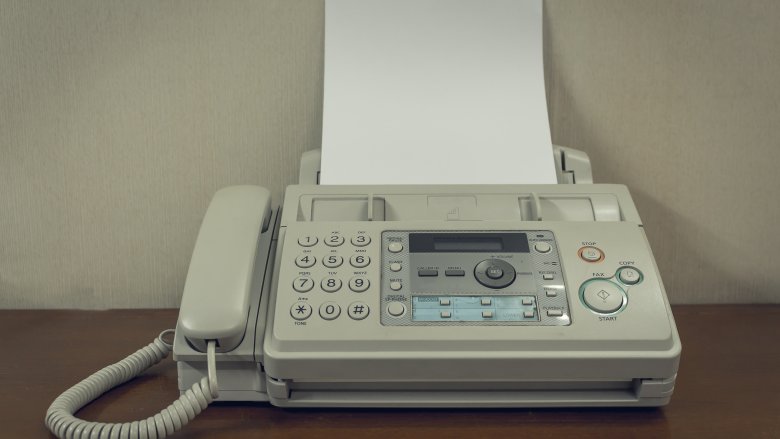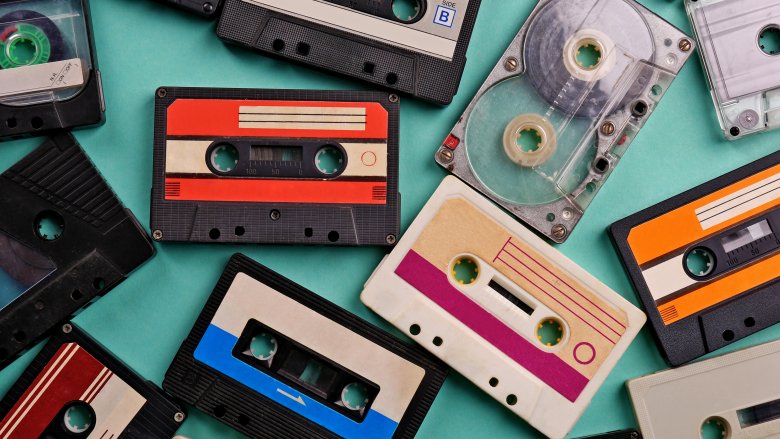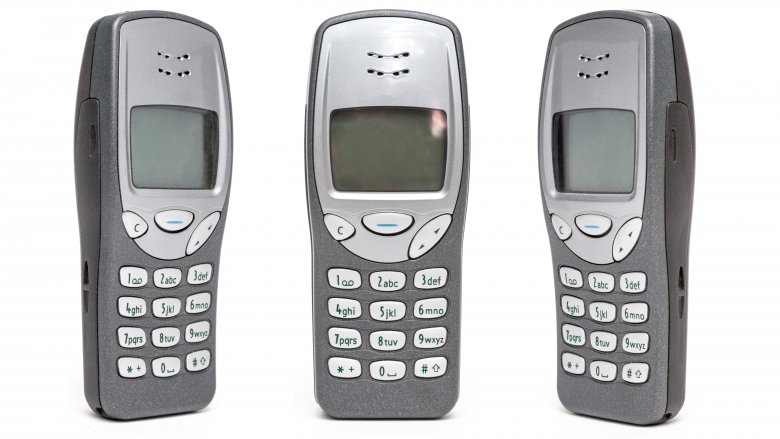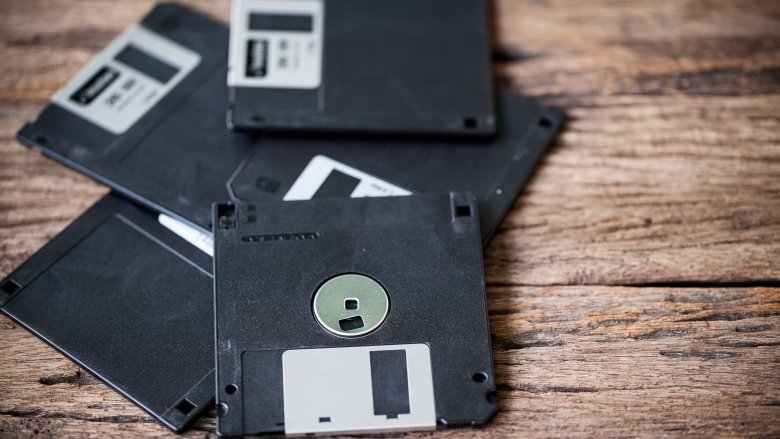Terribly Outdated Technologies That We Still Use Today
A good chunk of you reading this are reading on a pocket-sized rectangle of compressed technology millions of times more powerful than the computers that helped put men on the Moon in the 1960s. With such powerful technology literally at our fingertips, it's easy to forget that there are still people out there making do with technology you probably thought was obsolete. Here are some of the most shocking examples.
A bunch of American hospitals still use fax machines
Fax machines were essentially giant cubes that could be used to send a picture of a single piece of paper anywhere in the world, provided that place also had a giant cube capable of receiving faxes. Unreliable, ugly, and costly to maintain, fax machines were largely rendered obsolete almost everywhere by the tag-team of email and printers in the late '90s. Almost everywhere that is except hospitals.
As explained in an illuminating piece by Vox, although the majority of American hospitals have digital records, they don't share them with one another for a multitude of complicated reasons. The biggie, though, is that there's no financial or economic incentive to share information freely, so they don't. Experts admit it's probably a big deal, but no one really knows how to solve it without making fax machines in hospitals illegal.
Because so many hospitals rely on a piece of technology nobody under 20 has ever seen in real life, transferring documents is a massive pain and means. If one hospital wants a copy of an X-ray from another hospital a patient has visited, the second hospital would have to physically print out a copy and fax it over instead of instantly sending a copy via email. Good thing hospital visits are always so laid-back and casual, right?
Millions of people still have AOL dial-up internet
The internet was a very different place before near-ubiquitous broadband coverage and probably no one reading this ever wants to go back to the dark days of the age of dial-up. For a surprising number of Americans, though, dial-up internet is all they have. For them, there's no Netflix, no online gaming, and (worst of all) no memes.
Exact figures are hard to pin down, but in 2015 after Verizon bought AOL (via Time), it was revealed that some 2.3 million Americans were still using AOL dial-up internet and enduring the glacial download speeds most of us have thankfully left behind. If you're wondering why, the reason is largely because in many rural areas of the U.S., there's quite literally no other choice of internet service provider so it's pretty much dial-up or nothing. Thanks to internet service providers dragging their heels when it comes to upgrading their existing broadband infrastructure and the prohibitive cost of providing internet to rural areas in the meantime, it's likely that many of these poor souls are still using dial-up today and will be likely be stuck with it for the foreseeable future.
The Pentagon's contract software dates back to the '50s
Given that the minds working for the Pentagon have given us everything from microwave to half the technology bundled into an iPhone, you'd think they'd have access to the best computers money could buy. Wrong. An alarming number of computers in the Pentagon run on Windows XP, Windows 98, and in some cases, Windows 95. High-ranking Pentagon officials have claimed this is okay because those computers aren't connected to the internet. (That's true, but more go online all the time, without being upgraded.)
But that's just the tip of the iceberg because the backbone of the Pentagon's contract managing system is a piece of software from 1958. Called MOCAS, this antiquated system manages "roughly $1.3 trillion in obligations and 340,000 contracts" and is so integral to the working of the Department of Defense that it was easier to upgrade the computers connected to it than the system itself. All in all the system boasts just 8 GB of ram. To put it another way, a computer nestled in the heart of one of the most secure buildings on Earth, a computer that is absolutely integral to the continued functioning of America, couldn't even run Skyrim with the graphics turned all the way down.
Companies are still selling hundreds of thousands of cassette tapes every day
Given that record companies these days are struggling to sell CDs, you'd assume that the technology they replaced would be pretty dead. However, according to a 2016 article by Rolling Stone profiling cassette manufacturer National Audio Company, the cassette tape market is not only still alive and kicking, but thriving in the age of MP3s and Spotify.
National Audio's owner, Steve Stepp estimated in 2016 that his company sold some 100,000 cassette tapes per day and noted that his company received orders for music from a wide array of artists and genres. You can even get a Justin Bieber album on cassette tape if you really want to. The inexplicable success of cassette tapes in the digital age has widely been credited to their relatively low cost (you can pick up an album for as little as $2) and their retro appeal, which is very in right now thanks to hipsters and Star-Lord.
Drug dealers still use old Nokia phones
Unlike modern smartphones, which can be tracked and which store a host of potentially incriminating data along with lots of embarrassing selfies, old flip phones represent an enviable level of security in an increasingly monitored world. As a result of this, drug dealers in the U.K. have been observed conducting business near exclusively using older, decade old cellphones. Along with boasting a better battery life and a more durable design than modern smartphones, older phones are difficult to track and possess an inbuilt infrared port that can near instantly beam data securely from one phone to another. They're also relatively cheap, meaning they can be tossed if compromised after the minute amount of data they do store is transferred and summarily deleted.
According to Vice, the gold-standard for drug dealers when it comes to phones is the Nokia 8210 (similar to the classic brick), in part thanks to its amazing battery life and the fact it has Snake. That last part isn't a joke. According to one drug aficionado interviewed by Vice who's made a decent bit of scratch selling old Nokia phones to drug dealers, dealers love Nokia 8210s in part because "everyone likes a game of Snake."
The U.S. nuclear arsenal relies on giant floppy disks
The USA possesses enough nuclear warheads to level any city on Earth 100 times over and still have leftovers to fight Godzilla. Now you'd assume those warheads would be placed behind countless layers of protection and would require some kind of convoluted, high-tech system of authentication to launch. All you'd really need is a couple big floppy disks.
As detailed by Vice, most of the technology controlling America's nuclear arsenal dates back to the 1960s, and the odds of it ever being upgraded are relatively slim due to the estimated cost such a massive overhaul would incur. Although the age of the system itself has been viewed as a good thing by some, mostly due to the fact it's difficult to hack a half-century-old computer that doesn't go online, a report by Last Week Tonight found that it's amazingly easy to just randomly walk into a nuclear silo. So yeah, try to get a good night's sleep knowing the nuclear arsenal of the United States could be accidentally launched by a guy delivering food from Pizza Hut who thinks he's ringing the call bell.
Paramedics (and birdwatchers) in the U.K. still use pagers
The pager is a piece of technology whose existence is rendered moot by the existence of the smartphone seeing as literally every one of its functions is something a smartphone can do in less time while also streaming an episode of Frasier in HD in the background. Despite this, pagers are still utilized by both paramedics and lifeboat crews in the U.K., according to The Guardian.
Although at first glance they seem obsolete, pagers actually offer a few advantages over modern devices like smartphones. They boast a superior battery life and a more rugged, intuitive design. They're perfect for older people who just don't get these newfangled smartphone thingies. In addition, pagers are more reliable in areas where cell coverage might be spotty, like the middle of the ocean or a rural country road.
Birdwatchers also use pagers fairly extensively, sending and receiving information about rare birds they spot. In the U.K. specifically, bird-watching enthusiasts who want to receive up-to-date information about rare birds can sign up to receive regular pager updates from a company called Rare Bird Alerts.
Space probes still use processors and technology from the '90s
Before anything can be sent into space, it needs to be subjected to a host of tests to ensure that it's capable of surviving the endless bombardment of cosmic radiation all objects in the upper stratosphere are inevitably subjected to. Because of this, most of the pieces of literal Space Age technology circling the Earth or exploring the outer reaches of our solar system likely contain hardware that was developed over a decade ago.
This means that most anything attached to a rocket or satellite is usually years behind even consumer-grade technology, so whatever you're reading this article on is probably more sophisticated than the Curiosity Rover. That's not hyperbole — the need to use time-tested parts when constructing things designed to go to space or even other planets means that even newer space technology is powered by technology developed years ago. For the Curiosity Rover, the processors used to power its computer systems, while more hardened to cosmic radiation than consumer-grade ones, are largely analogous to the kind found in late '90s era iMacs.
The U.S. and U.K. navies both paid Microsoft to keep supporting Windows XP in 2015
Microsoft officially stopped supporting Windows XP with updates and whatnot way back in 2014, which didn't sit well with the navies of either the U.K. or U.S., both of which still had critical military infrastructure relying on XP. Rather than upgrade right away, each paid Microsoft millions to continue providing support to the legacy OS until 2016.
In the U.S., Navy officials literally formed a "Microsoft eradication team" tasked with doing nothing but figuring out a way to wean the Navy off Windows XP, with mixed success. In the U.K., the Royal Navy's nuclear submarines reportedly still run on a specialized, developed-just-for-you version of Windows XP called "Windows for Submarines." As if that wasn't bad enough, when journalists were given a tour of the Royal Navy's new flagship, the HMS Elizabeth in 2017, they noticed that it too was running on Windows XP, contradicting statements from top military brass who assured the public that it wouldn't. Apparently when the ship is formally commissioned in 2026 it won't run on Windows XP. Time will tell, but don't hold your breath.
Police officers in the U.K. still use Windows XP
First released in 2001, Windows XP is positively ancient by today's computing standards, but it's still the preferred OS of choice for a significant chunk of the British police force. According to a 2017 BBC article, an estimated 20 percent of computers used by the Greater Manchester Police ran on the old OS. Follow-up inquiries revealed that while the problem wasn't as widespread in other areas of the U.K., but of the police forces willingly to respond, most sheepishly admitted to using Windows XP on at least some of their computers. This brought up a number of security questions from experts, who pointed out that a massive cyber attack that had brought the National Health Service to its knees only weeks earlier was partly possible because 90 percent of the computers the services used ran on, you guessed it, Windows XP.
Why not upgrade? Along with the obvious factor of the monumental cost of simultaneously upgrading thousands of computers at once, the Greater Manchester Police noted that using XP was necessary due to the need to have continued access to "highly specialized applications" that couldn't be guaranteed to function on a newer OS or machine. That's fine, just keep rolling the dice, guys.
